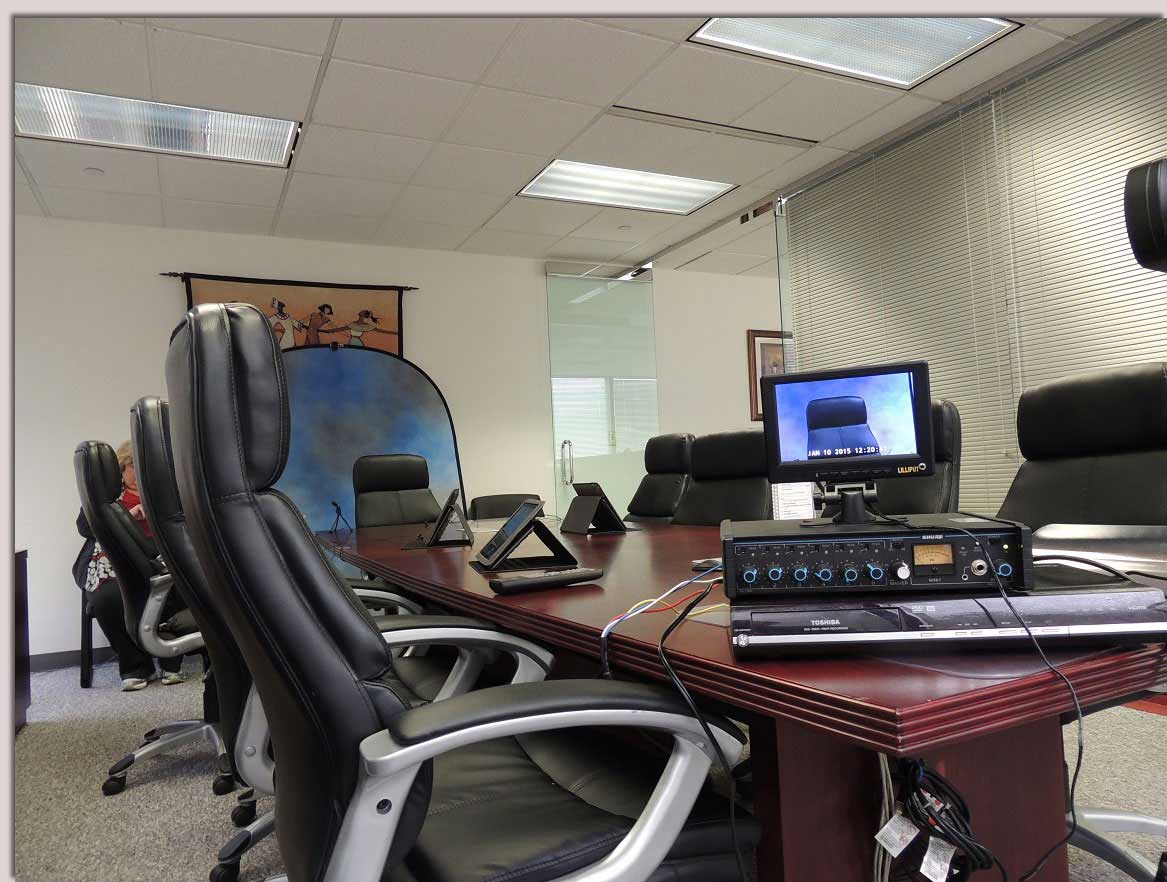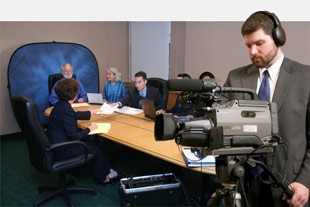High-Resolution Legal Videography for Essential Evidence Recording.
High-Resolution Legal Videography for Essential Evidence Recording.
Blog Article
The Function of Legal Videography in Depositions and Trials
Legal videography has actually arised as an essential device in both depositions and tests, providing a complex strategy to documenting witness statements. As lawful professionals increasingly identify its worth, it triggers a deeper evaluation of exactly how these visual records can affect juror assumptions and trial results.

Value of Legal Videography
Legal videography plays a critical function in the documentation and discussion of depositions and trials. This specialized area combines technical skills with lawful expertise to develop a dependable document of proceedings that can dramatically influence instance outcomes. The aesthetic element of legal videography enhances the understanding of witness testament, permitting jurors and courts to observe not just the spoken words but additionally the behavior, emotions, and body movement of the witnesses.
In addition, lawful videography provides an objective account of events, decreasing the capacity for misconception that can occur with created records alone. This aesthetic paperwork acts as an essential device throughout trial discussions, facilitating a more clear and even more influential narrative for both complainants and defendants. Moreover, the capacity to replay video sections during court proceedings makes it possible for lawful groups to stress essential factors, reinforcing their disagreements successfully.
The relevance of lawful videography extends past the court room; it also plays a crucial function in maintaining evidence for future reference, whether for appeals or more lawsuit. As such, its assimilation right into the lawful procedure is essential for guaranteeing a fair and accurate representation of the truths, inevitably adding to the search of justice.

Process of Legal Videography
While catching the nuances of depositions and trials, the procedure of legal videography includes numerous important steps that make certain top notch, exact recordings. At first, a specialist legal videographer prepares by assessing the situation products and understanding the certain needs of the deposition or trial. This preparation includes familiarizing themselves with the individuals and the context, which assists in catching essential information.
On the day of the recording, the videographer establishes the required devices, which generally includes high-definition electronic cameras, microphones, and correct lights. Making sure optimal angles and sound high quality is important, as it straight impacts the effectiveness of the recording. The videographer communicates with lawyers and individuals to establish procedures, making certain that every person comprehends the recording procedure.
During the deposition or trial, the videographer carefully tapes the proceedings, paying close focus to both spoken and non-verbal hints. This consists of capturing the demeanor and reactions of witnesses and attorneys. After the session concludes, the videographer may edit the video for clearness and compliance with lawful standards, creating an end product that properly mirrors the procedures for future recommendation and usage in lawful contexts.
Advantages in Depositions
The incorporation of videography in depositions offers countless advantages that enhance the total procedure of collecting proof. One primary advantage is the capacity to catch witness testaments with visual and acoustic helpful resources fidelity, supplying a much more precise depiction of the witness's behavior, tone, and body language. This multidimensional technique enables lawyers and courts to evaluate integrity better than standard written records alone.
Additionally, videographed depositions act as a powerful device for preserving statement. Needs to a witness come to be unavailable for trial, their videotaped deposition can be played in court, guaranteeing that their proof stays easily accessible and pertinent. This aspect significantly decreases the risk of shedding essential information that might influence case outcomes.

Finally, videography improves the overall expertise of the deposition process, instilling confidence in clients regarding the thoroughness of their legal depiction (legal videography). By leveraging innovation, lawyers can considerably enhance the efficiency of depositions
Effect On Tests
In many tests, the combination of videography can considerably affect the presentation of evidence and the court's perception. Legal videography records witness statements and critical proof in a dynamic layout, allowing jurors to engage with the material on multiple degrees. This aesthetic part boosts the storytelling facet of a trial, giving context and emotional vibration that typical text-based evidence may lack.
Moreover, video clip recordings can work as powerful devices for impeachment during cross-examination. When disparities arise between a witness's previous declarations and their court room testament, video clip evidence supplies an unbiased referral that can guide jurors' opinions. This immediacy and clarity can reinforce the integrity of an event's narrative while all at once threatening opposing debates.

Future Trends in Legal Videography
As we look toward the future of legal videography, several arising fads promise to reshape its function within the useful link court. One substantial trend is the assimilation of expert system (AI) in video clip analysis and editing. AI can streamline the process of recognizing vital minutes in tape-recorded depositions, permitting attorneys to swiftly access relevant web content, thereby improving efficiency in case preparation.
In addition, the rise of virtual fact (VIRTUAL REALITY) and augmented reality (AR) modern technologies is expected to transform just how jurors experience evidence. legal videography. By submersing jurors in a substitute atmosphere, these innovations can supply a much more extensive understanding of intricate situations, leading to more enlightened considerations
Furthermore, the boosting need for remote depositions, increased by the COVID-19 pandemic, will likely proceed. Lawful videographers will need to adjust to brand-new read here software program and systems to guarantee top notch recordings in virtual setups.
Finally, the growing focus on data protection will require stricter methods for keeping and sharing video evidence. As the legal landscape advances, legal videographers need to remain abreast of these fads to preserve their significance and efficiency in the judicial process.
Final Thought
In summary, legal videography serves a crucial feature in the judicial procedure, boosting the honesty of depositions and tests. By recording the nuances of witness testimonies, this medium not only preserves important evidence but also help in providing information effectively to jurors. The significance of visual paperwork in evaluating reputation and helping with interrogation can not be overemphasized. As technology remains to develop, lawful videography is poised to additional change its role within the lawful landscape.
Report this page